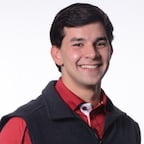Following his basketball team blowing a 12-point halftime lead to the Kansas Jayhawks, West Virginia head basketball coach Bob Huggins made a very different yet insightful comment about the state of officiating in sports. “Officials want to be part of the game, but they don’t want to be part of the game that has to answer,” Huggins said. “Why aren’t they in here answering your questions? We’re going to bring 19 and 21-year-old kids in here that don’t get paid and you’re going to ask them questions. You’re going to ask [Daxter Miles], ‘Why didn’t you shoot it?’ They don’t want to get asked why didn’t you call this, why didn’t you call that.”
The main impetus for this quote was the astounding difference in the number of free throws the Jayhawks were granted (35) compared to the Mountaineers (2).
This quote is far from the typical sob story excuse from a team losing a game. The NCAA and other professional sports have very stringent rules regarding commentary on officiating. Yet at the same time, when a colossal error does occur and everybody – even the men in stripes responsible for the bad calls – knows it, the NCAA, NBA or NFL will come out and say, “it was an incorrect call,” or some other terse statement of fact that helps nobody.
I suggest the NCAA and sports leagues across the country amend this policy. It is understandable to prohibit players and coaches for commenting on the officiating. Yet if that is the case, the officials themselves should have to answer questions. The coach who drew up the wrong play to end the game or the kicker who missed the field goal wide left as time expired have to face the microphones in the post-game press conference and explain what went wrong or what they were thinking. So then why shouldn’t the men directly responsible for one team attempting 33 fewer free throws not have to explain themselves? This is not to say that the calls referees make on the court or field are wrong. However, by allowing more transparency there will be less confusion among players, coaches and officials.
While officials explaining their actions will not have an impact on the game, knowing they will have to explain themselves rather than remain behind a closed curtain immediately following the game would potentially lead to fewer scenarios in which discrepancies of this proportion occur. In addition, hearing directly from the referee who threw the flag on the controversial pass interference penalty or blew his whistle on the questionable foul call would assuage many people’s frustrations with the system. League offices responding 48 hours after a bad call is made does nothing other than provide a superficial PR shield and further anger players, coaches and fans.
Just like the players and coaches, officials will never be perfect — and that’s OK, it’s a part of the game. But that is precisely why they shouldn’t be granted any immunity from the media — no matter the reasons of the NCAA or any other sports association.
Contact Zach Naidu at znaidu ‘at’ stanford.edu.
